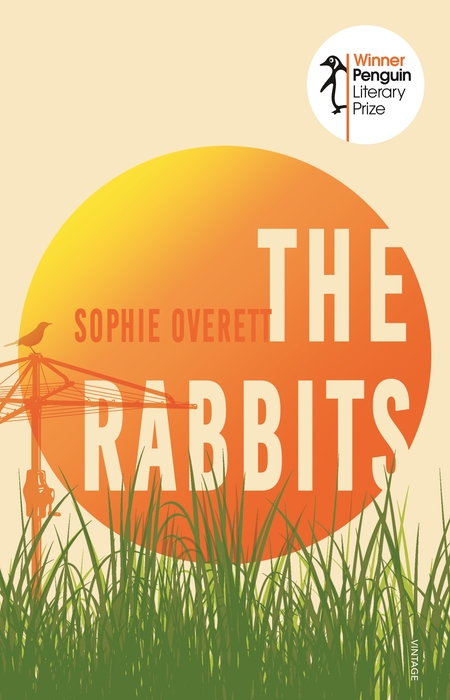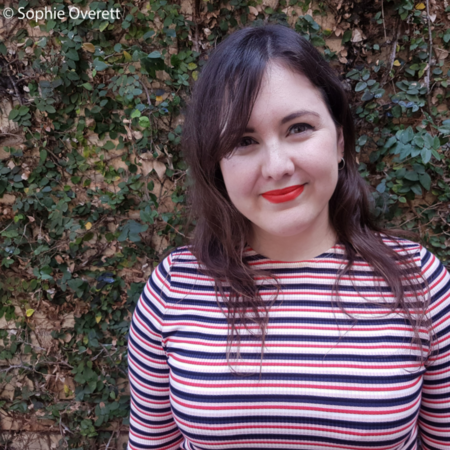There are some books that are so beautifully, exquisitely well-written that you want to stop almost every sentence and exult in the sheer love and skilled use of language they represent.
More, you feel an insistent need to type out every sentence you adore, and let’s be honest in books as wonderful as The Rabbits by Sophie Overett, that’s pretty much every one of them, and share with your friends and family and anyone who will stop on social media long enough to listen.
What makes the winner of the Penguin Literary Prize even more of a reading delight is that the kind of sparklingly lush prose Overett fills her novel with also come replete with a devastatingly moving amount of emotional accessibility too.
It’s not always a given that artful wielding of language and a meaningful, affecting narrative will go hand in hand, with the former, no matter how pleasing, sometimes well outweighing the readability of latter
But this is very much what happens with The Rabbits which tells the story of the Brisbane-based Rabbit clan – mum Delia, daughter Olive and sons Charlie and Benjamin – in quietly nuanced but arrestingly impactful language that feels like poetry married with the harsh realities of family life.
It’s the perfect combination of means and substance and it brings out the moving story of the Rabbit clan with the kind of power and conviction that its well-judged understated delivery might not as first suggest is there but which gathers with ever more force as the story of a family at a crossroads progresses.
“The night Charlie Rabbit disappears, Delia thinks of her sister.
Not of the last night she’d seen her when Bo had smiled at her with tea-stained teeth, her cushiony lips fat across them, nor of Bo’s brittle bones, burning all those months later in the smoky city crematorium. Rather she remembers the sticky summer nights of their childhood spent at the hospital their mother worked at, where they turned their old stretchers into tombs and bandaged each other like Egyptian mummies.” (P. 1)
The Rabbits’ journey to a confrontational fork in the road has been a long time coming as The Rabbits opens.
Delia, an art teacher at a local college has long since stopped painting despite teaching it, her slow drift to creative inertness brought out by lingering grief, a slowly-decaying relationship with the now absent Ed, and children who seem to be further apart from her with every day.
Olive, who gave up university in favour of a fulltime gig at a supermarket because she’s not sure who she is or what she wants, reacts to every action or word by her mother with barely-concealed and often outright vitriol and scorn.
Locked in a wholly dysfunctional friendship with disaffected rich girl coworker Lux, and pursuing Jude who is likely to prove all kinds of wrong for her as well, Olive is desperately unhappy with her life, her family and her career but utterly unsure of what she can do to fix it.
While she is self-medicating to an often ruinous degree, her brother Charlie, consumed by a love for astronomy and enamoured with learning in general, disappears at the age of sixteen, setting in a slow-burning trauma that begins to undo the family until, quite remarkably it begins to knit them together again in ways they neither foresee or believable is possible.
The one remaining member of the family is Benjamin, the marriage-saver baby who failed to live up to his parents’ intent, but who, at 11, is still capable of naïve enthusiasm and a capacity for playful happiness that the rest of the family has long since set aside.
That’s not to say he’s untouched by the trauma around him; Benjamin, for all his joyous innocence, is troubled by rampant anxiety, the kind that makes life at school and at home an exercise in fraught living that no 11-year-old should ever have to contend with.
For all of these seemingly insurmountable problems, which Overett unfurls in pleasingly slow-moving fashion so that you have to fully appreciate their scope and import, and how they are affecting each member of the family, The Rabbits somehow remains a curiously and cautiously hopeful read.
Much of that has to do with the magical realism that Overett injects into the story, an amount so judiciously well-placed that it elevates the story without once feeling like a cheap parlour trick.
The Rabbits is a gorgeously adept blend of the grindingly, heat-soaked real and the supernaturally transportive, the two coming together so well that the more fantastical elements feel like an entirely natural fit with the overall authentic realism of the story.
As it emerges that among the many secrets corroding the life of the Rabbits is the death many year’s earlier of Delia’s much-loved older sister Bo, the family has to grapple with not only who they are as individuals but who they are as a family and if there is any chance they will ever fit together pleasingly again. (Assuming they ever did in the first place which is debatable.)
“Are you mad at me?’
“And the truth is Olive doesn’t know if she’s mad at him. She wonders if she can be mad at Charlie when there isn’t a Charlie there to be mad at. She can’t Benjamin this situation and run around in a cape, using the static of their lives as fodder for the fantastic, or pretending that any part of her can make sense of Charlie’s disappearance, this handwriting and this hurt.” (P. 173)
What strikes you most decisively about The Rabbits, again apart from the heart-stoppingly lovely writing, is the way in which Overett conveys how you can connect with people and places when and where you least expect it.
Olive, for instance, finds herself forging a bond with Mindy, her supervisor at work, who has a rather magical secret of her own and who proves unexpectedly instrumental in her coming to her grips with who she is and how she wants to fit into and relate to her family.
Benjamin too finds a new and special friend in new classmate Poppy, the two final year of primary school kids finding a commonality with each other which extends well beyond same place and age.
Even Delia finds herself caught in unexpected new and old connections, not all of which survive the journey from lacklustre present to revived future, happily for her since where Delia is at the start of The Rabbits is not where she really wants to be.
That’s true of the entire Rabbit clan, and most particularly for Charlie for a rather magical reason, and it’s the journey of the family from lost and fragmented to haltingly but promisingly connected that fills this confrontingly real but reassuringly hopeful of novels with an emotional power that will affect you long affect the final page has been turned and the Rabbits have moved on to a future none of them expected but which they are all glad to embrace in their own unique and affectingly true ways.

